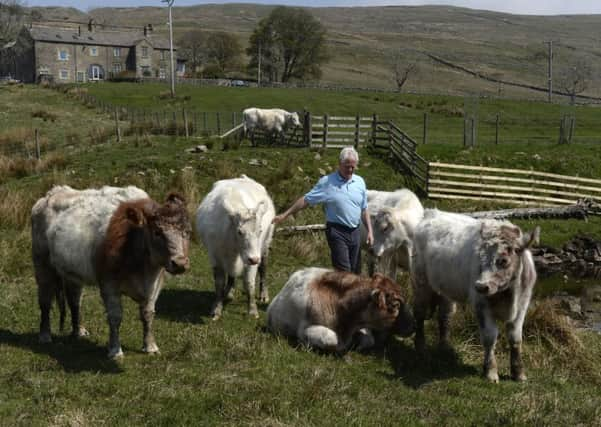'˜More stock does not mean greater profits for farmers'


With uncertainty hanging over the industry in terms of future trade and the way in which direct farm support payments will possible by capped and phased out in the coming years, there is a clear need for farmers to make their businesses as resilient as possible to change, Mr Clark said.
As part of a research project for The Prince’s Countryside Fund, he has visited 26 farms in and around Nidderdale and found that only one of them was prepared for 2024, when farming subsidies will cease.
Advertisement
Hide AdAdvertisement
Hide AdMr Clark is adamant that farms will have to become leaner businesses to survive.
“What I’m finding is that hill farmers will be better off just feeding animals on the vegetation that their farms can grow with very little extra costs such as fertilisers and bought in animal feed,” he said.
“The less of those things they buy and the less stock they have, the more money they will make.
“The feeling is that the more stock you have the more money you will make but it is completely counter-intuitive.
Advertisement
Hide AdAdvertisement
Hide Ad“We are finding the opposite of that is true. The more production you have over and above what the farm can sustain with grass and silage, the less money you make.”
The average income of farmers without subsidies is £22,000 but in Nidderdale it can be as low as £7,000.
Mr Clark said: “It is completely vital that farmers look forensically at where their costs are.”